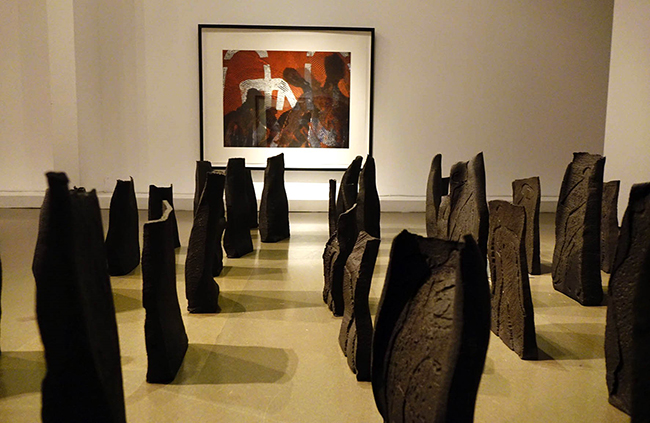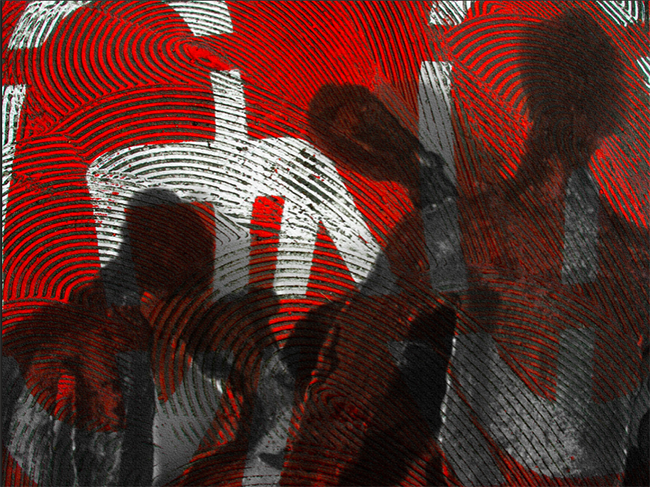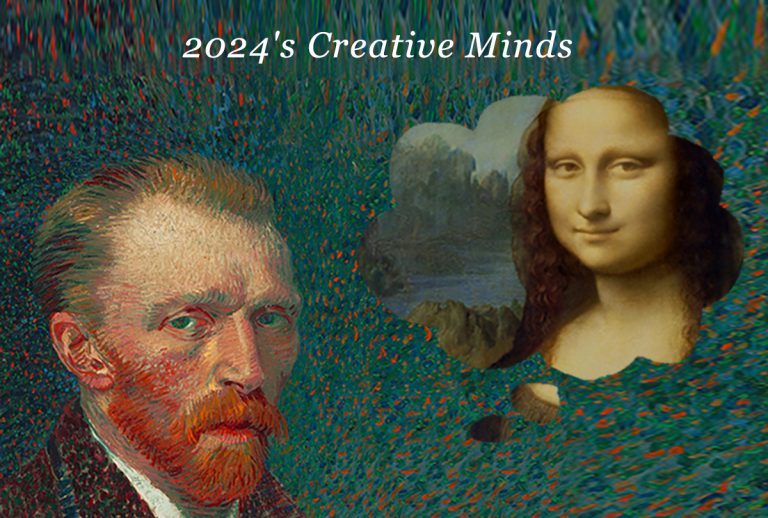As the year 2024 is almost over, it’s exciting to take a moment to reflect on some of the creative minds of the year. Among them is Athens-based artist Vicky Tsalamata, whose work delves deeply into the human experience. With a sharp and thoughtful perspective on life’s complexities, she draws inspiration from Honoré de Balzac’s La Comédie Humaine, blending past and present to craft narratives that encourage us to pause and reflect on the fleeting nature of existence and the forces that shape our world.

With a career as Professor Emeritus of Printmaking at the Athens School of Fine Arts, Tsalamata brings a scholarly rigor to her art. Her practice spans diverse mediums, including printmaking, digital media, installations, and video art. This multidimensional approach allows her to redefine artistic boundaries, inviting audiences to experience layered and thought-provoking visual worlds.
One hallmark of Tsalamata’s work is her use of archival print on Photo Rag Hahnemühle cotton paper. This material lends her pieces a tactile richness and timeless quality. Her artistic process weaves together traditional and contemporary techniques—intaglio, photography, lithography, and digital technology—to create intricate works that capture the fleeting impressions of urban life.

In her series Graphics of the Road A, Tsalamata turns her attention to the subtle, often unnoticed details of city life. Drawing inspiration from 17th century iron matrices, cut with an acetylene flame, she creates fragmented, shadow-like figures. These silhouettes evoke the fleeting presence of individuals who move around us daily, anonymous yet ever-present in the fabric of urban existence.
The visual language of this series reflects the layered experience of city living. Tsalamata’s blend of traditional printmaking with photography and digital tools enhances the fragmented quality of the figures, placing them in an ambiguous space that feels both familiar and alien. The result is a reflection on the transient, interconnected lives we lead, shaped by the ebb and flow of urban rhythms.

Tsalamata’s project Life Is Wildly Unpredictable. Can We Talk About It? takes a more political turn, addressing systemic issues and collective struggles. A piece within this series, Life Is Like a Slow Deep Breath. Can We Talk About It?, draws from the haunting final words of Eric Garner, “I can’t breathe.” These words, repeated eleven times, became a powerful symbol against systemic racism and police violence.
In this work, Tsalamata confronts a range of societal challenges, from political corruption and financial inequality to environmental degradation and social exclusion. The repeated question, “Can we breathe?” is both a literal reference to Garner’s tragedy and a broader commentary on the suffocating pressures of contemporary society. Through stark imagery and evocative text, Tsalamata compels viewers to sit with discomfort and reflect on their role in these realities.
While deeply tied to Tsalamata’s observations of life in Athens, her work resonates far beyond her local context. Her use of mixed media allows her to construct multidimensional pieces that are both immediate and timeless. These works not only reflect on contemporary issues but also encourage viewers to examine themselves within the broader social landscape.
Tsalamata’s ability to balance dystopian undertones with moments of resilience makes her art particularly poignant. She demonstrates that even in fragmented times, there is room for meaningful dialogue and self-reflection. Her work reminds us that art can serve as both a document of our world and a lens through which we understand it.
Vicky Tsalamata’s creations are more than visual experiences—they are meditations on the complexities of modern life. By combining traditional craftsmanship with modern technology, she creates works that are as layered as the ideas they represent. Her art captures the fragmented nature of human existence while offering moments of clarity and connection.
Whether exploring the fleeting impressions of city life or grappling with broader societal challenges, Tsalamata’s work encourages us to think deeply about the world we inhabit. Her unique perspective and multidisciplinary approach firmly place her among the creative minds shaping the future of art in 2024.

